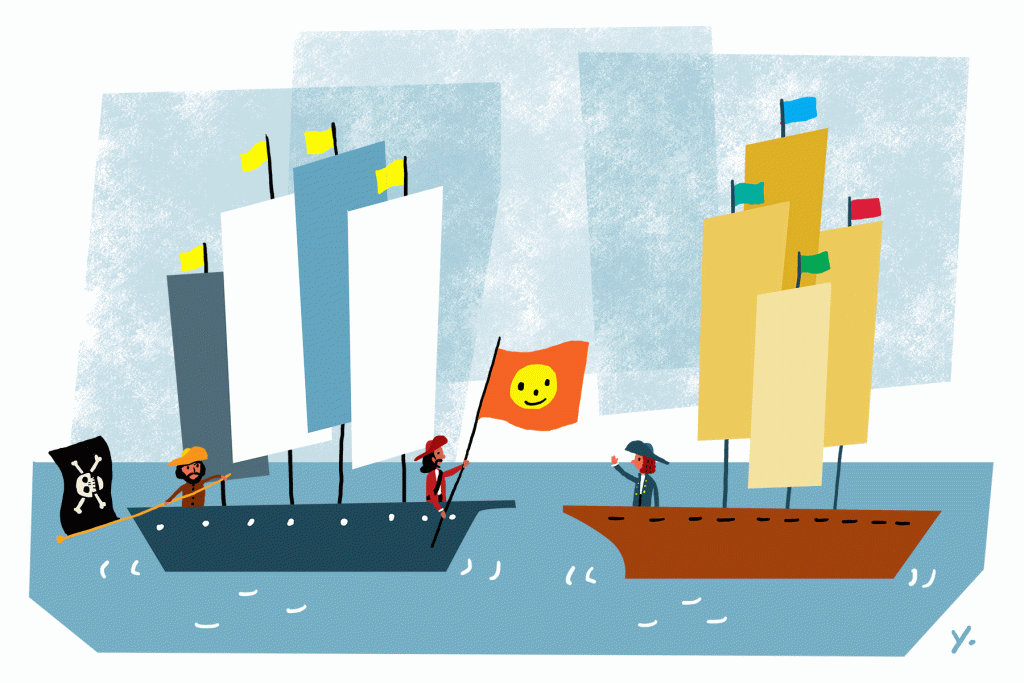If the proper aim of life were handwritten on a secret card before we drew our first breath, what would it say?
Each holiday season, I break out of storage the stack of games I used to play with my kids and now enjoy playing with my grandkids. As I lined them up this year, I remembered how much it is to play chess and Monopoly® by ‘family rules.’
“Let’s play Give Away!”
In Give Away, a not overly original bang-bang variation of chess, each player attempts to move as many players into capturable territory where their opponent is obliged to capture them. In Give Away, the player left with only their king standing is ironically crowned the winner. (For even more fun, play this backward variation as fast as possible!)
Rule alterations for family Monopoly were less radical but more rewarding: All monies to be paid to the bank for any reason—buying property, making improvements, paying taxes—were paid not to the Bank but onto the center of the board to be scooped up by the next player to land on Free Parking.
Then there were the rules we dreamt up for a combination of chess and Stratego®, a wargame where soldier’s uniform colors—redcoats and bluecoats—are known, but not their rank, the deciding factor of each altercation.
“What if a pawn were really the king? Or the knight a rook?”
“Do they move based on their true identity are or whom they are pretending to be?”
Years ago, on a long bus ride to see a college bowl game, I sketched for my traveling companion, Loren Sucher, my latest Variation on a Theme by Parker Brothers. Hoping to lure him from his spy novel, I pitched him a family variation of Monopoly I had been working on. Let’s call it Who Knows?
“What if we could rig Monopoly such that up until we count all the money, we only think the player who grabs the most gets to keep it? What if there is a hidden rule that doesn’t kick in until the game ends? And what if that rule changes everything?”
“You don’t believe in dying with the most toys?”
“You know Monopoly has Chance and Community Chest cards, right? Who Knows uses ‘Paradigm’ cards to reveal the object of that version of the game, but only after it’s been played.”
“Like, that it’s all fake money?”
“Haha. The Paradigm card might say something like, ‘There’s no place like HOME,’ meaning the player with the most houses wins. Or, ‘Who laughs last laughs loudest’—the player who had the most fun during the game takes all.
“That’s so random. It’s as if you’re saying we can’t know the meaning of life until after we’re dead.”

The playbook of human conflict is replete with false-flag operations. In the pirate heyday, the Jolly Roger was replaced by the colors of a friendly fleet until just before the ships of prey came for their booty. In August 1939, to give Hitler an excuse to invade Poland, Gestapo operatives dressed as Polish soldiers and attacked a German radio station. There has even been recent talk that Russia attempted to mount a false-flag operation to justify its incursion into Ukraine.
But like the imagined game of Who Knows?, false-flag operations needn’t resort to violence to use subterfuge to their advantage. In anonymous robocalling schemes, election staff have been known to pass themselves off as their candidates’ opponents to cast unfavorable impressions to the electorate. To gain an unfair advantage (or maybe just for a laugh), unscrupulous competitors in loosely unregulated sporting contests might pretend to belong to the other team. In high school, the girlfriend of my girlfriend enjoyed rolling down her car window to shout hysterically to unsuspecting pedestrians, “My name is (my girlfriend’s name) and my number is 555-5555!”
And what about us? If there truly was a Paradigm card placed face down on the table at the beginning of every meeting, every call, or even just when casually speaking with a colleague, what would it reveal about our identity?
After the meeting (or call or conversation), were we to turn over the card to reveal the words written on its underside—put there by ourselves? The cosmos? Our horoscope? Parker Brothers?—what might we find?
Were we the real deal after all?
Or did we just run a false-flag operation?
Who Knows?
This post is from a series of “Declarations of Being & Becoming,” originally written as part of a LinkedIn Newsletter called Say the Change. You can access the entire series here.